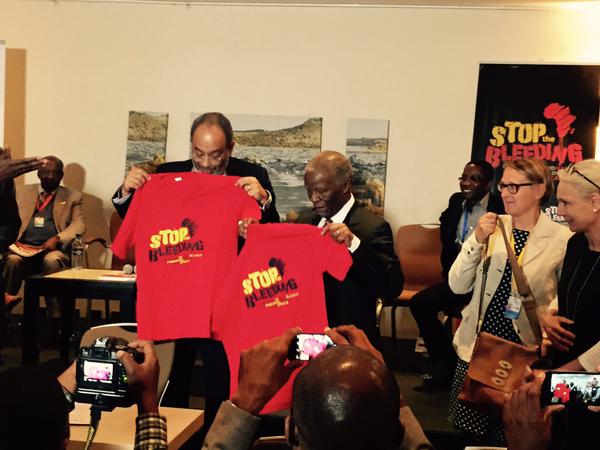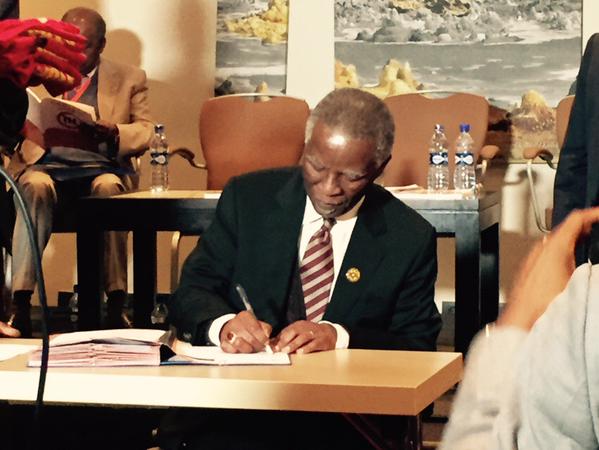Weeks removed, how should we view Addis Ababa Summit?
August 25th, 2015
August 25th, 2015
It’s been just over a month since the conclusion of the United Nations 3rd Financing for Development Conference (FfD) in Addis Ababa, Ethiopia. While the final text hasn’t changed since then, now that we’re removed from the bubble of the Summit, it’s important to take another look at the outcomes from an alternative perspective.
It’s true, the week’s most talked about issue, the creation of a UN intergovernmental body on tax, didn’t make the final text. But despite a fervent campaign to block the proposal from the United States and the UK, civil society remained unified on the tax body’s importance. And government negotiators from the global south spoke pointedly about their need to be fully included in decision-making processes on global tax matters. However, in the end, political will fell short.
When you set this disappointment aside, however, there were small positives that came out of the Addis Ababa summit. If we’re going to acknowledge the failures of the conference, it’s important for us to recognize the promising developments, too.
Aside from the simple fact that tax justice and illicit financial flows (IFFs) were the talked about issues at the conference, both in the media and between negotiators (which is a victory on its own), language that made its way into paragraph 23 is, at least, an important step in getting world leaders to recognize the economic havoc caused by tax evasion and corruption.
From the Addis Ababa Action Accord (pg. 8):
We will redouble efforts to substantially reduce illicit financial flows by 2030, with a view to eventually eliminating them, including by combating tax evasion and corruption through strengthened national regulation and increased international cooperation. We will also reduce opportunities for tax avoidance, and consider inserting anti-abuse clauses in all tax treaties.
We will make sure that all companies, including multinationals, pay taxes to the Governments of countries where economic activity occurs and value is created, in accordance with national and international laws and policies.
The United Nations will look to the Addis Ababa Action Plan in setting the development agenda for years to come, so securing language on IFFs is undeniably a mark of forward progress.
But neither this text in a vacuum, nor policy changes mandated by bodies like the OECD or UN, can alone help deter the negative effects of illicit financial flows. It’s vital that the issue becomes a globally recognized cause, from national-level government bureaucrats to the everyday citizen, which is why perhaps the biggest win to come out of the Addis Ababa summit was one that didn’t even occur within the UN’s walls.
At a side event that concluded just as negotiators across the street were scrapping the UN tax body, Tax Justice Network – Africa, along with five other African CSOs, were highlighting the recent launch of “Stop the Bleeding”, a pan-African campaign aimed at raising the public awareness and ground support for the movement to stop IFFs.

Though the campaign was launched in Nairobi in June, the event in Addis Ababa featured a number of dignitaries that lent their names to the cause and spoke encouragingly about its importance.
Former South African President Thabo Mbeki, who spearheaded a landmark report on illicit financial flows out of Africa was in attendance and spoke at length about the importance of understanding illicit financial flows and how they negatively affect African economies. Former President Mbeki, who chairs the High Level Panel (HLP), also made clear that awareness of the problem is a good first step, but implementation of solutions must follow closely behind if we’re to make substantial progress.
Pres. Mbeki: Real challenge we face with d #IFF report is d challenge of implementation @taxjusticeafric @stop_AfricaIFFs #ffd3 #taxjustice
— Kwesi Obeng (@kobeng3) July 15, 2015
In further encouragement for the future of the Stop the Bleeding campaign, President Mbeki went on to say that civil society organizations are critical in the implementation of the HLP report’s findings and recommendations. At the end of the event, President Mbeki officially signed the pledge to help stop illicit financial flows.
Mbeki: #CSOs critical 2 IFF report implementatn @taxjusticeafric #Stopthebleeding @stop_AfricaIFFs #ffd3 #taxjustice pic.twitter.com/5HmvVxhtPX — Kwesi Obeng (@kobeng3) July 15, 2015

We didn’t achieve all we set out to when we first arrived in Addis Ababa; and we didn’t succeed in the creation of a new tax body that would finally give all countries a seat at the decision-making table.
But the weight given to our issues may have surpassed anything ever seen before. Campaigners, government negotiators, thought leaders, and even former Presidents, were rallying around the call to curb IFFs. As the FfD Conference moves further into the rear view, it’s right to point out the shortcomings, but building on the progress we did make should increasingly become our primary objective.